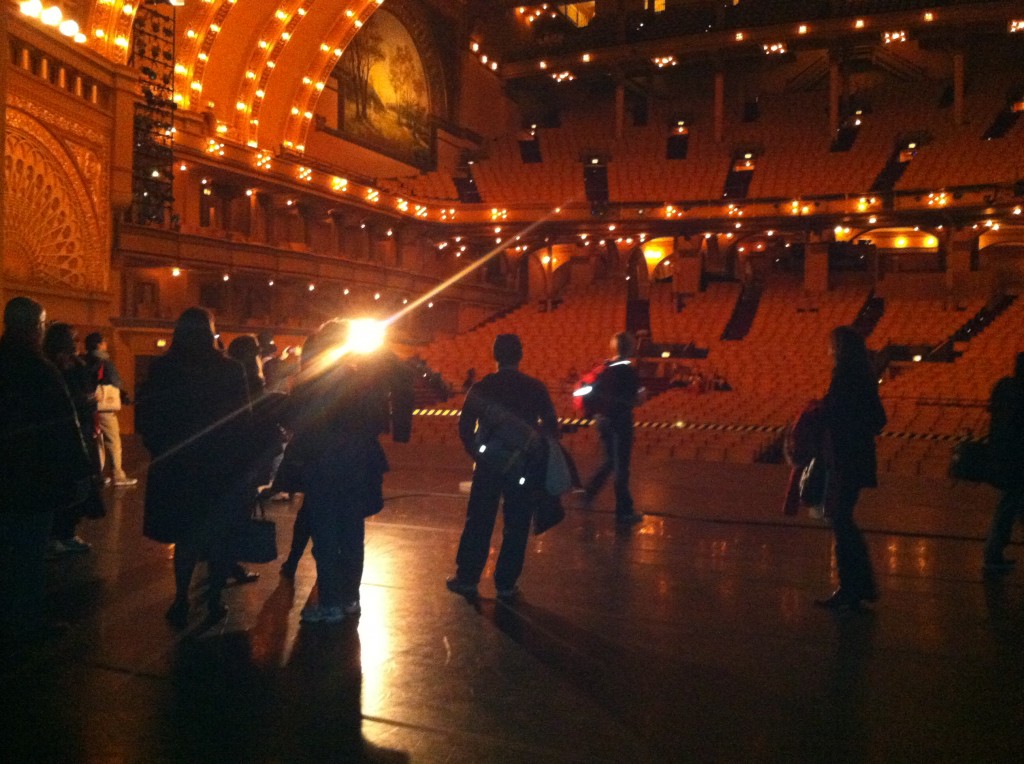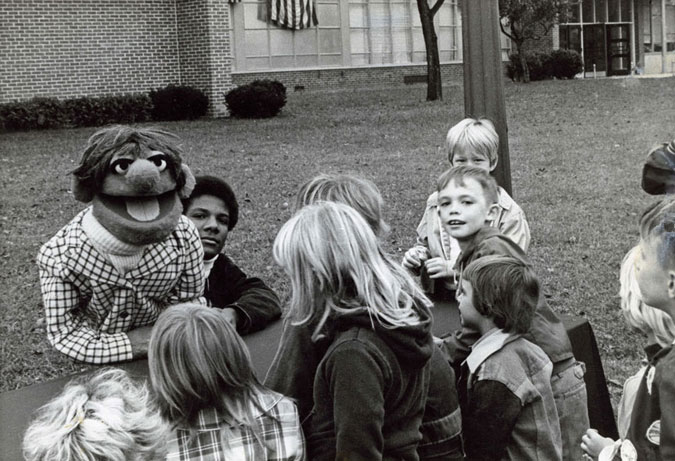Here’s AWP Day 1 and my train ride from SF. Oh yeah, and AWP stands for Association of Writers and Writing Programs.
Day 2
On my second morning I got smart: I skipped Starbuck’s and went next door to the Corner Bakery, where there was a very short line. Plus the coffee was about a billion times better.
During the different sessions, I thought a lot about my own writing. There’s one novel I worked on for 10 years. Set in the late ’60s, it’s about a tough Asian American girl who drops out of high school to run off and look for her long-lost grandfather. Much of the novel is her driving alone through the desert, meeting kooky characters. I could never get the novel done, at least not to my satisfaction. Once she got to her destination, it got totally messed up.
Anyway, I was sitting in a session and all of a sudden thought, What if there were zombies? What if, while this character was going through her own shit, the world was going to shit. People were getting sick and turning into zombies, and while on the road, she has to fight them?
That got me interested in attending a morning reading, Apocalyptic Literature. It was very good, especially Pinckney Benedict, who read from a short story about an apocalypse that involved people turning into dogs, and vice versa. I totally want to buy his book of short stories now.
That afternoon, I hit the book fair again. I realized that a couple of my workplace’s Twitter friends (Poetry Foundation and Electric Lit) had tables, and I wanted to be more social, so I introduced myself and gave away notebooks.
Then it was time for a tour of the Roosevelt University historical buildings – woot! – free for AWP attendees. It had nothing to do with writing, but it was my one of my favorite parts of the conference. Especially cool was going into the auditorium where Margaret Atwood gave her keynote, and standing on the stage.

Then I skipped all the afternoon sessions and worked out again.
That night The Nervous Breakdown was sponsoring a reading at Beauty Bar. To tell you the truth, I almost didn’t go. It was fucking cold, raining off and on, and like a dummy, I hadn’t brought my winter coat. But MB encouraged me to go.
It was fun to meet a couple of TNBers in person, namely Gina Frangello and Jonathan Evison (and I introduced myself to someone who looked like Nick Berlades but was not), but unfortunately we didn’t stay too long for the reading. The reading before it ran over so we got a late start, and then these people in the back wouldn’t shut up. They just kept talking talking talking while people were reading, even when others kept shushing them and yelling, “Be quiet!” Even after Jonathan went up and told them multiple times to shut the fuck up. It was so annoying we had to leave after that.
The downside of having a reading in a bar.
Day 3
The last day of the conference! Again no nine or ten AM sessions for me, just a strong cup of Corner Bakery coffee and some work. Then MB and I got breakfast at this diner on the way to the other hotel.
The first session I went to was called Ethos, Logos, and Pathos: Or, Who’s the Speaker Here? I had no idea what it was going to be about and took a chance. It was somewhat interesting though a bit academic. The speakers analyzed a couple of poems in terms of the speaker. But it ended up being too academic for me so I left early and popped into the end of Making Room for the Graphic Narrative, ie, comics and graphic novels. It was actually pretty interesting. I came in during question and answer, which I normally hate, but people asked real questions, even if with overly long pontificaty intros. Also, I haven’t seen so much plaid in one place since the ’90s.
My next session was The Poetics of the Essay, my favorite of the whole conference (it was also packed to the gills). The speakers talked about the art of the essay, and each analyzed a particular one. My favorite was the one about Joy Williams and her essay/rant, “The Case Against Babies” (by the way, the first Google hit for “joy williams case against babies” is the Church of Euthanasia – weird!). The essay was first published in Granta back in the ’90s which means I probably read it, but I can’t remember and want to dig it up again. The speaker talked about that while personal essays are supposed to be, well personal, many of Williams’ aren’t, defiantly so.
Speaking of rants, here’s one about the place where I grabbed a mid-afternoon snack:
After The Poetics of the Essay session, I was hungry so I went outside looking for food. Big mistake. It was freezing, windy, and snowing, and me without my winter coat. Finally, I found a place, Tamarind Sushi, that looked pretty good.
And it was. I had the spicy beef noodle soup, and while it wasn’t spicy at all, it was still delicious and only eight bucks. After I finished my meal, I was in a great mood.
Then the bitchy waitress ruined it for me.
The restaurant was crowded and service was a little slow, so when I got my check, I just left the tip on the table and went to pay at the register. Apparently, this was “wrong.” The guy kept saying, “I can’t ring you up here,” which really confused me because there was a register right there. “You have to pay your wait staff.”
“Oh,” I said, thinking I had to weave my way back to the table and sit there and wait for who knew how long although I was standing there with my money.
“I can give you change,” he said, and I thought he meant he was going to process my payment but instead he gave me four fives for my twenty. Um, how does this help me?
Meanwhile, the waitress (who looked like a Chinese transvestite) was standing there looking pissed off. She picked up the tip, I gave her some money, and she gave me a dollar, which was correct change but I was still just confused by the whole situation.
“Do you want a dime?” she asked sarcastically. My bill was $8.90. “You want a dime?”
Finally, I understood, said no, tweeted about the experience, then left.
I’ll say it again: the bitchy waitress at Taramind Sushi in Chicago ruined what otherwise would have been a lovely dining experience. I recommend that you NOT go there, unless you don’t mind a total bitch of a waitress.
Anyway.
The last session of the conference was Literature and Evil. I really wanted to like this session, but it was boring. I heard a couple of somewhat interesting things, but it wasn’t like the Poetics of the Essay session, or even Apocalyptic Literature. I left early.
For our last night in Chicago, we went to an Italian place, picked mostly because it was nearby. I think it was a good choice. The food was a little expensive but very good, and the service was excellent (unlike at Tamarind Sushi).
Then we were total hermits and hung out in our room for the rest of the night.
To sum up
Overall the conference was fun and interesting, but I don’t think I’ll go again unless for work or to participate on a panel. I think by now I’ve gained experience that I’ve crossed over from neophyte to (kind of) expert.
But it was a good experience. It was the first time I traveled for a writing conference. The only writing conferences I’ve been to were in New York while I lived in New York. It’s a very different feeling to be in a hotel. In New York, I could go home whenever I wanted.
It was also, obviously, very different from conferences and meetings from my previous jobs. Those sucked. They were stressful and boring and I always had to be on. If you got caught in your workout clothes while sessions were going on, you got dirty looks. I felt like I was always sneaking off and playing hooky. This in comparison was fun and relaxing. It was a vacation.


